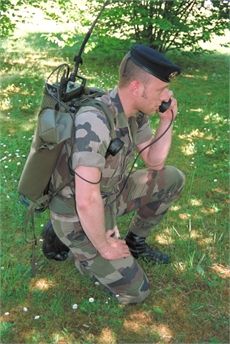WASHINGTON, Nov. 9, 2010 — Troubled troops, veterans and family members have a round-the-clock, free resource for locating the help they need to deal with psychological health problems and traumatic brain injury.
The 24/7 Outreach Center is part of the Defense Centers of Excellence for Psychological Health and Traumatic Brain Injury, or DCoE. The center is always staffed with trained, professional health-resource consultants.
“The DCoE call center provides specific subject-matter expertise on psychological health and traumatic brain injury,” Lolita O’Donnell, DCoE acting director for clearinghouse, outreach and advocacy, said yesterday in a joint interview with the Pentagon Channel and American Forces Press Service.
“That’s what makes us unique,” she added. “We try to zero in on a narrow area” — psychological health and traumatic brain injury — that is a current concern of deployed troops, veterans and their families.
Callers can use the telephone, e‑mail or online chat to get help for and information about everything from administrative discharge to combat stress signs and symptoms to the latest treatment options for psychological health concerns and brain injury.
“We have reliable, credible resources and tools in psychological health and brain injury,” she added. “We also serve as a clearinghouse for all these relevant tools and resources that DOD has produced in collaboration with the VA.”
DOD and the Department of Veterans Affairs have partnered in this effort, along with a national network of military and civilian agencies, community leaders, advocacy groups, clinical experts and academic institutions.
“We don’t want to turn anyone away, that’s why we established what we call a ‘warm handoff transfer’ with the VA crisis line,” O’Donnell said. “Both of us helping our servicemembers who are in crisis — we feel like we’re more effective.”
Servicemembers and family members who call, e‑mail or chat don’t have to give their names or personal details.
“Our goal is to be able to connect with them at the right time and the right place and whenever they feel like they need to talk to somebody,” O’Donnell added.
As of September 1, since its launch in May 2009 the outreach website had received nearly 130,000 visits and more than 900,000 page views.
Families are a special focus of the program, she said.
“Families are the connecting link for all of us because if our families are not supported then our servicemembers will probably not do well in the job they need to do,” she said.
DCoE works with the Sesame Workshop, the nonprofit organization behind the Sesame Street television program, on an initiative that uses video to help kids deal with deployments, homecomings, changes and grief.
For servicemembers, DCoE has launched the Real Warriors Campaign to fight the stigma that can be associated with seeking psychological help and treatment.
DCoE also manages the inTransition program to make sure that servicemembers who receive psychological health care aren’t forgotten when moving from one duty station to another, or deploying or transitioning from DOD to VA care.
In this program, O’Donnell said, “coaches, counselors, social workers and nurses with at least three years of experience connect the dots for our servicemembers that are in the process of transition.”
Source:
U.S. Department of Defense
Office of the Assistant Secretary of Defense (Public Affairs)

 von
von 